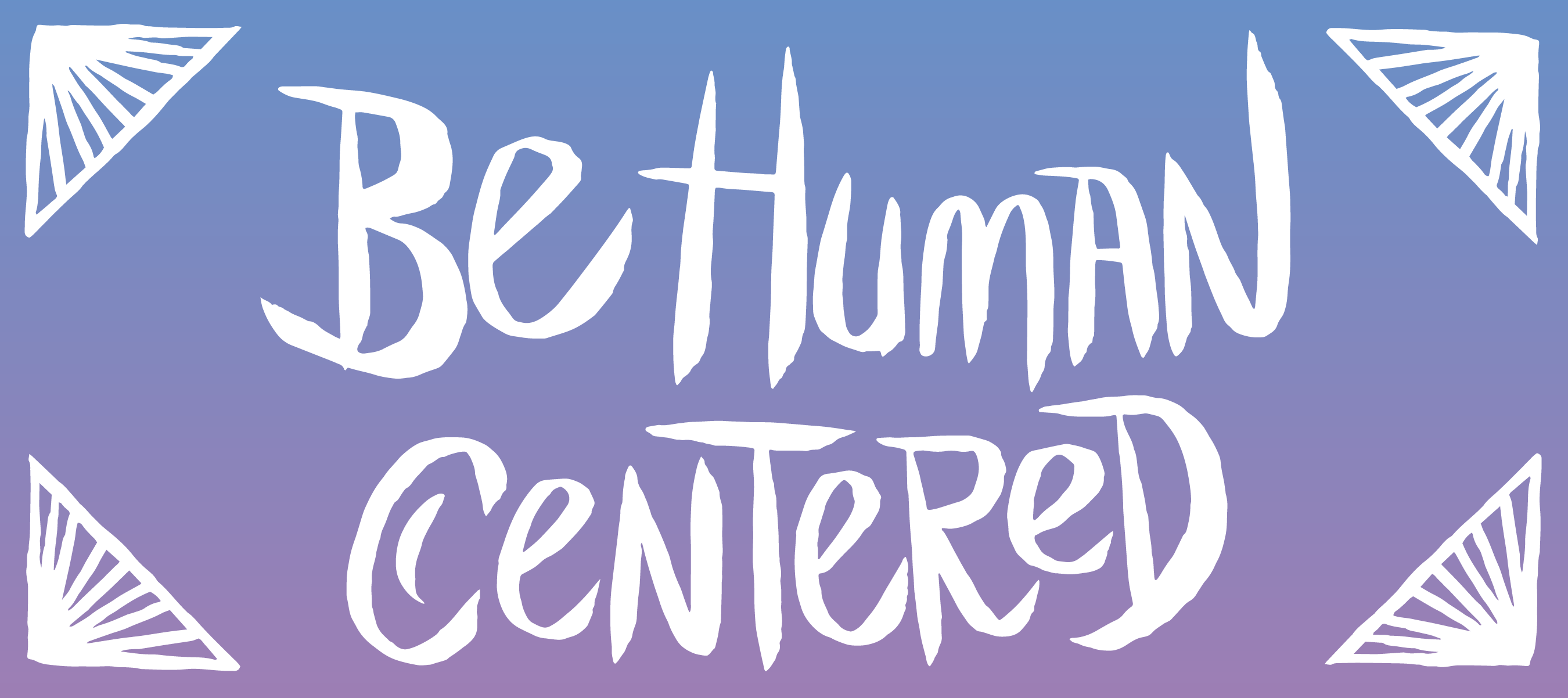It’s one of our guiding values that unites us, that drives how we work and how we interact with the people we serve.
This article is the second in a 7-part series on Alight’s guiding values – written by Abraham Leno, Business Manager for Asili in Eastern Congo – and first appeared on Medium. The first was published by Alight CEO Daniel Wordsworth on Medium.
I choose to put humans at the center. It’s my life story.
As a kid from Sierra Leone who grew up in refugee camps in Guinea, I knew humanitarian aid well. The UN, NGOs, churches, and many more social agencies were trying to serve me. But the sad truth is — they had no idea who I was. In fact, most of them didn’t even care to know my name, my aspirations, or the things I truly wanted. The things that might make me feel human again.
My family and I were only a statistic. And statistics don’t want or feel much of anything.
These agencies held a set of assumptions about refugees, about what we wanted, about what we deserved. And these assumptions all seemed to be aligned around the bare minimum for survival — we had enough food, water, and shelter to eke out an existence. But it wasn’t a life. And more than that, if I dared to question, to give my opinion, then I was considered to be a complainer, or ungrateful. I felt so small.
It was repelling — and after some time I wanted nothing to do with the humanitarian system. I rejected their support because it felt like in order to accept it, I was debasing myself, I was admitting the loss of dignity. Their efforts were many, but their impact was little.
The Question
The moment that changed my life forever didn’t come from the UN. Or an NGO. It came from an act of almost unbelievable generosity, from one human to another. A man visiting the camp where my family lived sat with them, he learned their story. He got to know them. And my parents told this man that their greatest fear was for their son — me.
They feared that because of the intense marginalization and loss of hope that I felt, that they would lose me forever to the violent forces that threatened to offer me meaning, to offer me identity, to offer me dignity in a life that had none. “What does he really want?” he asked them. And the answer was simple — it’s just that no one else had asked it before. What I wanted more than anything in the world was an education.
After some time, that’s exactly what this man was able to help provide. A college education. A chance at a future. I went to school and found purpose. I saw a pathway, a bright future ahead of me. I made my family proud. Because this one person saw me as human, with desires and dreams, my life was never the same again.
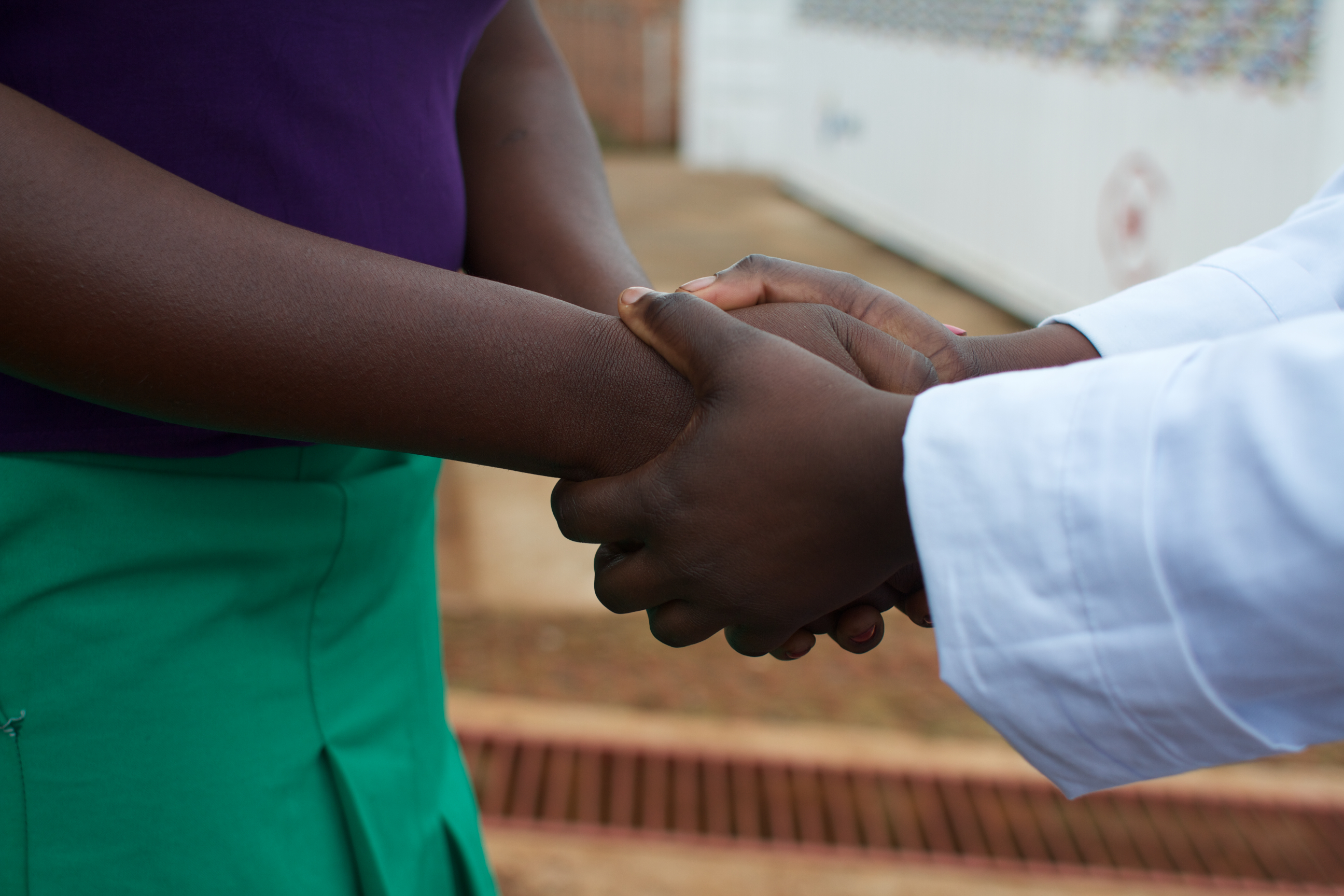
A Different Path
I didn’t become one of the violent young men of my generation. Instead, I devoted my life to a career in humanitarian aid, working to change the system. To do things differently. To center everything around the real, complicated people we serve, and never settling for anything less than our best. To truly ask what people want. And more than that, to listen — and to act.
As I grew and developed my career in the development space, I never forgot the power of the most human moment of my life — or the pain of the least. From Pakistan to Sudan, to South Sudan, to Ethiopia, Sierra Leone, to Liberia and then on to Congo, I carried that lesson with me.
Building Something Human
Now, I’m the General Manager of Asili in eastern Congo, a social enterprise launched in 2014 and co-created with Congolese families. Asili produces over 50 million liters of potable spring water every year, has built world-class primary health clinics capable of serving 10,000 people. We have over 100 full-time employees, and a water pipeline of over 80km. And more than even all that — we’ve managed to infuse hope, pride, dignity, and respect into everything we do, into every customer interaction.
When we set off to design Asili, the project was still a spark of an idea…is it possible to build a business in low-resource communities in eastern Congo that not only provides reliable healthcare, clean water, and economic resources, but that does so in a way that is worthy of the people it serves? That people feel ownership over, and are proud of? There’s only one way to find out — by asking them.
Together with a research team from IDEO.org, we fully immersed ourselves in the lifestyle and activities of the communities. We spent time with Congolese moms, with kids, with families, in their homes, in their villages. We traveled with them early in the morning or late at night to fetch water using 40 pound jerry cans. Sometimes we walked up to eight miles a day. We tested the water they drank, we showed and explained the results and yes, it was impure. They led us to their nearest mountain springs from which we now have built miles of networks that serve over a hundred thousand people each year. We all drink from these water sources together.
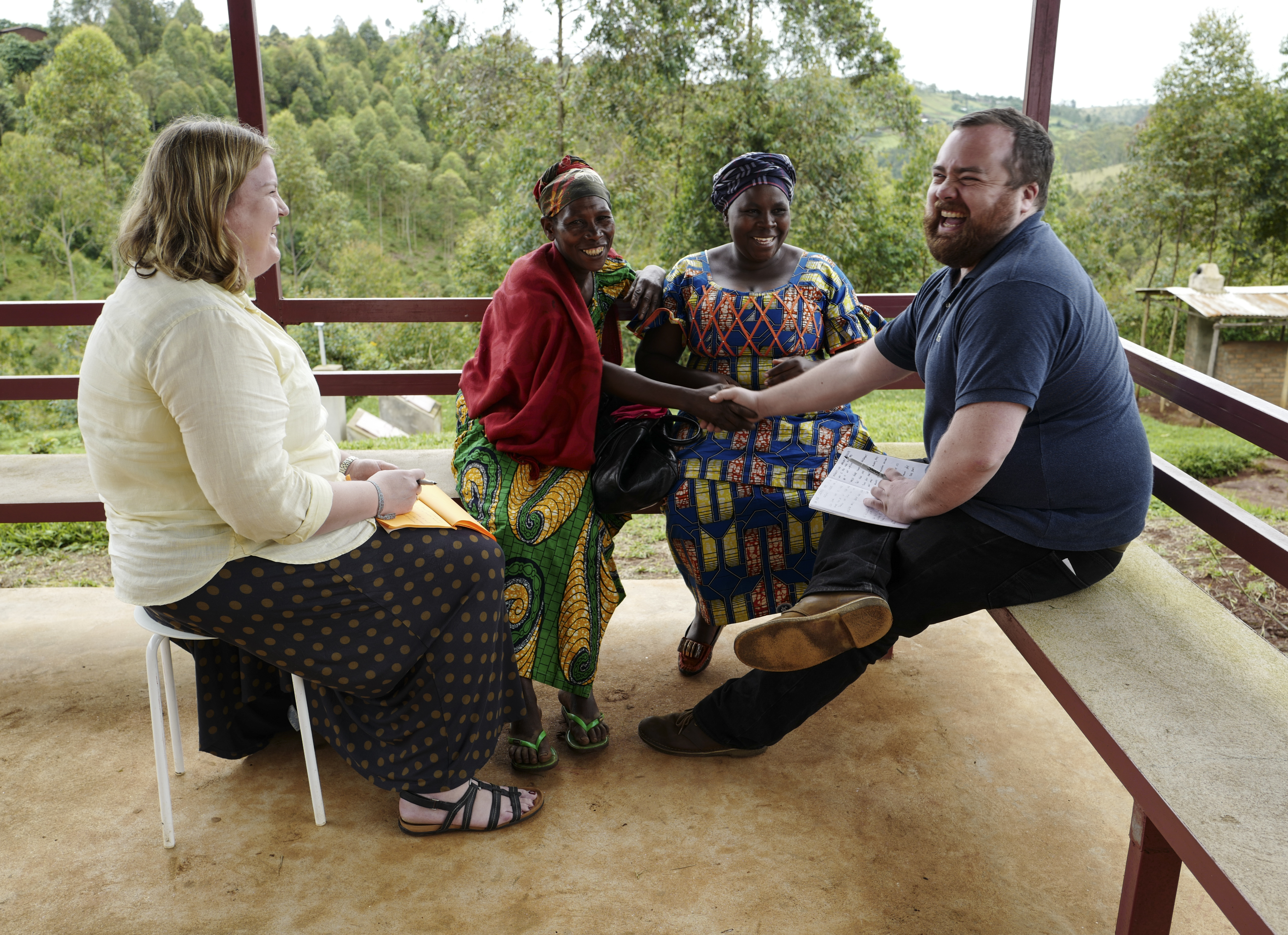
IDEO team talking with Congolese Mamas about what they want for their families and community.
As we continued to deepen our understanding of the people we learned that an economic spark was needed to help families afford the quality healthcare and clean water they so wanted. So we met and decided on crops we wanted to plant for a couple of seasons and we prototyped them. When the harvest was great, we ate and danced. But when it was poor, we found out what went wrong and supported each other.
We walked to the healthcare facilities with moms to know how far they went for health services. We witnessed the disappointment and anger when they arrived at a clinic to learn it had run out of medicines or didn’t have any medical staff present. They told us they needed a clinic they could depend on. Asili hours are clearly posted, and we’re always open when we say we will be and fully stocked with the medicines people need. They told us they could never predict what a clinic visit would cost. Asili clinics and water points post prices in plain view. They wanted something that reflected and supported the community.
So that’s what we built.
A Human Worthy Service
Asili is working. Why? Because real people — the people who are now using Asili — played a not so insignificant role in the design. Because our standard is to only offer services we feel comfortable using — that are worthy of all our children. If I wouldn’t bring either of my two small children to one of Asili’s clinics, then it’s simply not good enough. Bottom line.
Being human centered means never settling for anything that doesn’t honor the abundance — the desires, hopes, dreams, and needs — of the people we serve. Democratically co-designing Asili with the people it was intended for did something incredible. It unleashed their potential, unlocked their talent, and it opened their eyes to what’s possible — what they deserve. And what’s resulted is a uniquely Congolese brand that is actually making incredible impact.
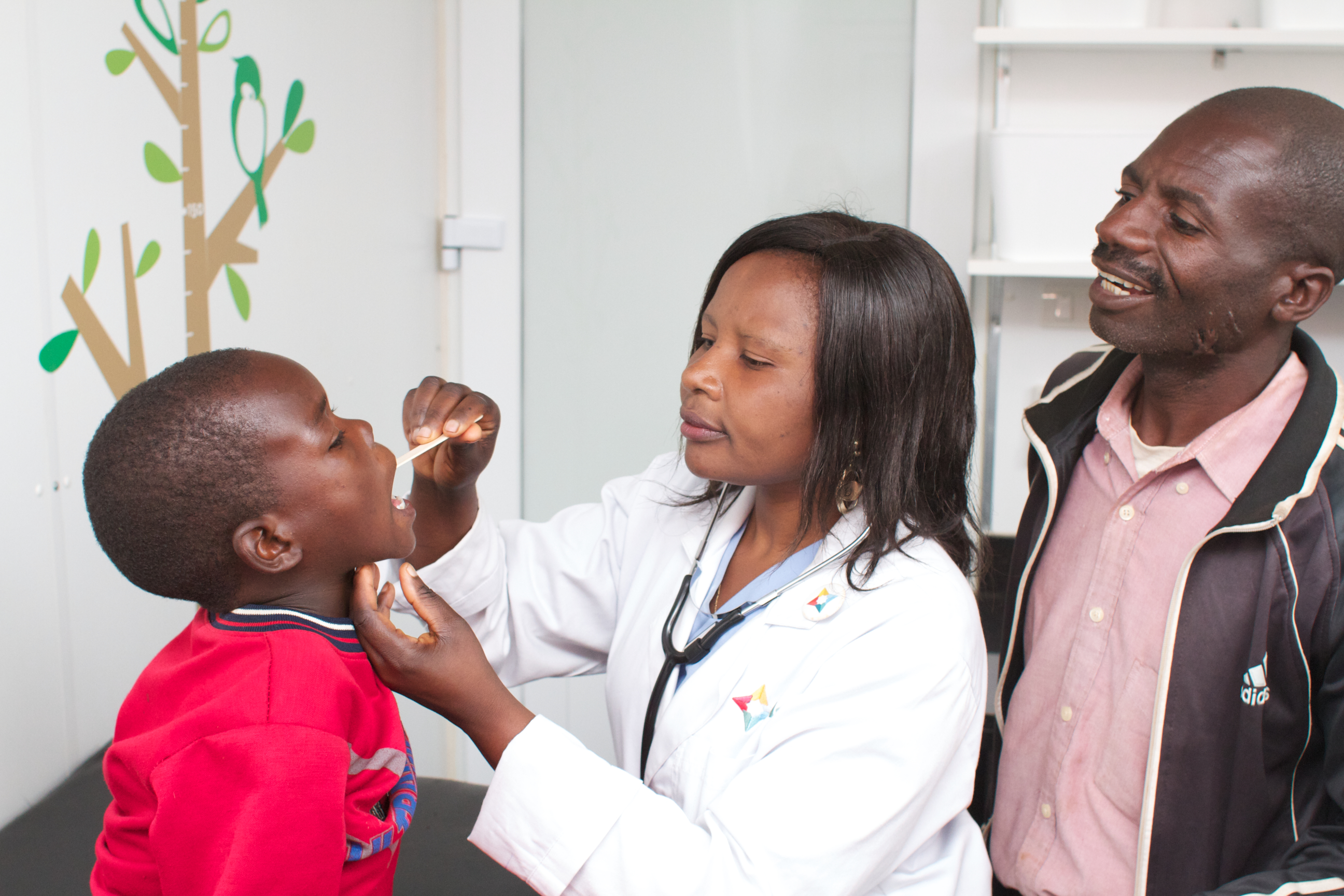
Adrienne cares for one of our younger patients at the Asili clinic in Mudaka, South Kivu, DRC.
Putting People At The Center
What we’ve discovered in the act of deep, empathetic listening and immersion is that being human centered is not an option. Not if we want to create and provide meaningful services that actually matter and make a difference in people’s lives.
The idea that the people we serve are helpless, needy, and always vulnerable isn’t just damaging — it’s just plain wrong. The people we serve are abundant, filled with incredible ideas. There is no “us” and “them,” no “experts” and “beneficiaries.” This is something we’re building together.
Being human centered is at the very core of who we are, who we want to be, and how we’ll get there. It simply isn’t possible to make the kind of change we want to make in the world without starting with them — their voice, their ideas, their brilliance, their hands and hearts.
So what does being human centered look like every day? How can we practice it? How do we make a little boy in a refugee camp in West Africa feel seen, feel human?
We can open our arms in welcome, make eye contact and see ourselves in the face across from us. We can ask and listen, instead of assume and tell. We can acknowledge the past, but create the present. We can hold true to the idea that alongside the physiological needs, we need to give meaning and purpose, pride and hope, a sense of connection and belonging. It’s deeply personal. And it’s deeply human.
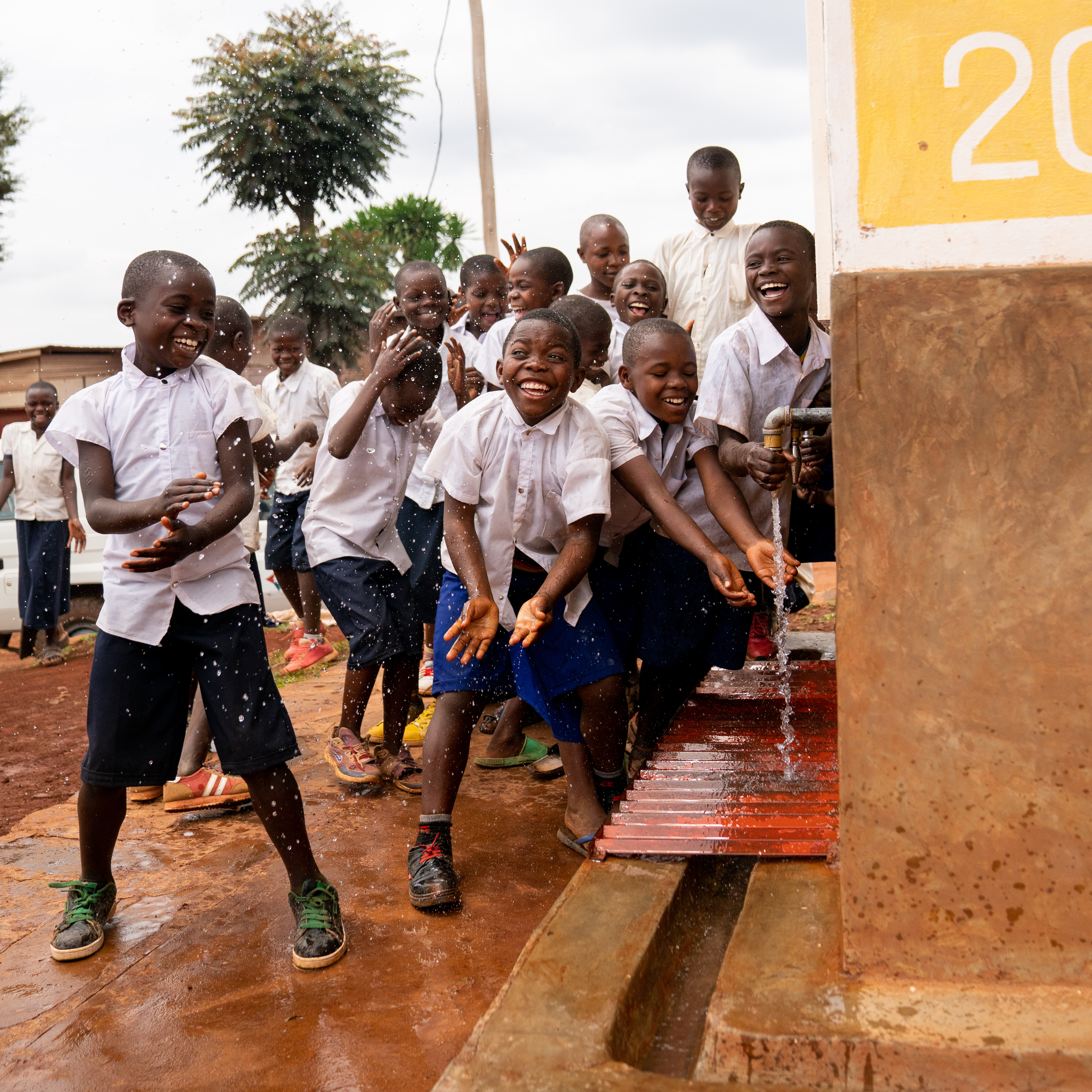
Fooling around at an Asili clean water kiosk.
